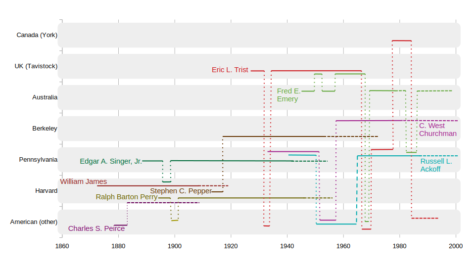Judith Rosen agreed to give an online presentation for the Systems Thinking Ontario meeting in October 2023, after we converted her in-person meeting at OCADU in August into a discussion circle. Channelling the anticipatory systems approach of her father, mathematical biologist Robert Rosen, Judith has been extended those ideas in her own continuing observation of living systems.
This recording of the session is available on Youtube, as well as on the Internet Archive .
| Video | H.264 MP4 |
| October 16 (1h53m) |
[20231016_ST-ON_Rosen AnticipatorySystems 925kbps_1760x900.m4v] (1760×900 925kbps 883MB) [on the Internet Archive] |
An audio has been extracted from the video.
| Audio | |
| October 16 (1h53m) |
[20231016_ST-ON Rosen_AnticipatorySystems.mp3] (110 MB) [on the Internet Archive] |
A copy of the research article is posted on the wiki.st-on.org . Here’s the original abstract.
When we think about evolution — specifically the entailment underlying the process of change in species of living organisms, over eons of time, which we call “evolution” — and as we seek to increase our scientific understanding of it, one glaring omission is that there is no mention of the fact that living organisms manifest patterns of behavior that are radically different from non-living systems. Life does not just react, the way all non-living systems do; life also Anticipates. Therefore, we need to factor in the Anticipatory nature of all life into our models (both our mental models and scientific models) and see where that leads us in our understanding.… Read more (in a new tab)



